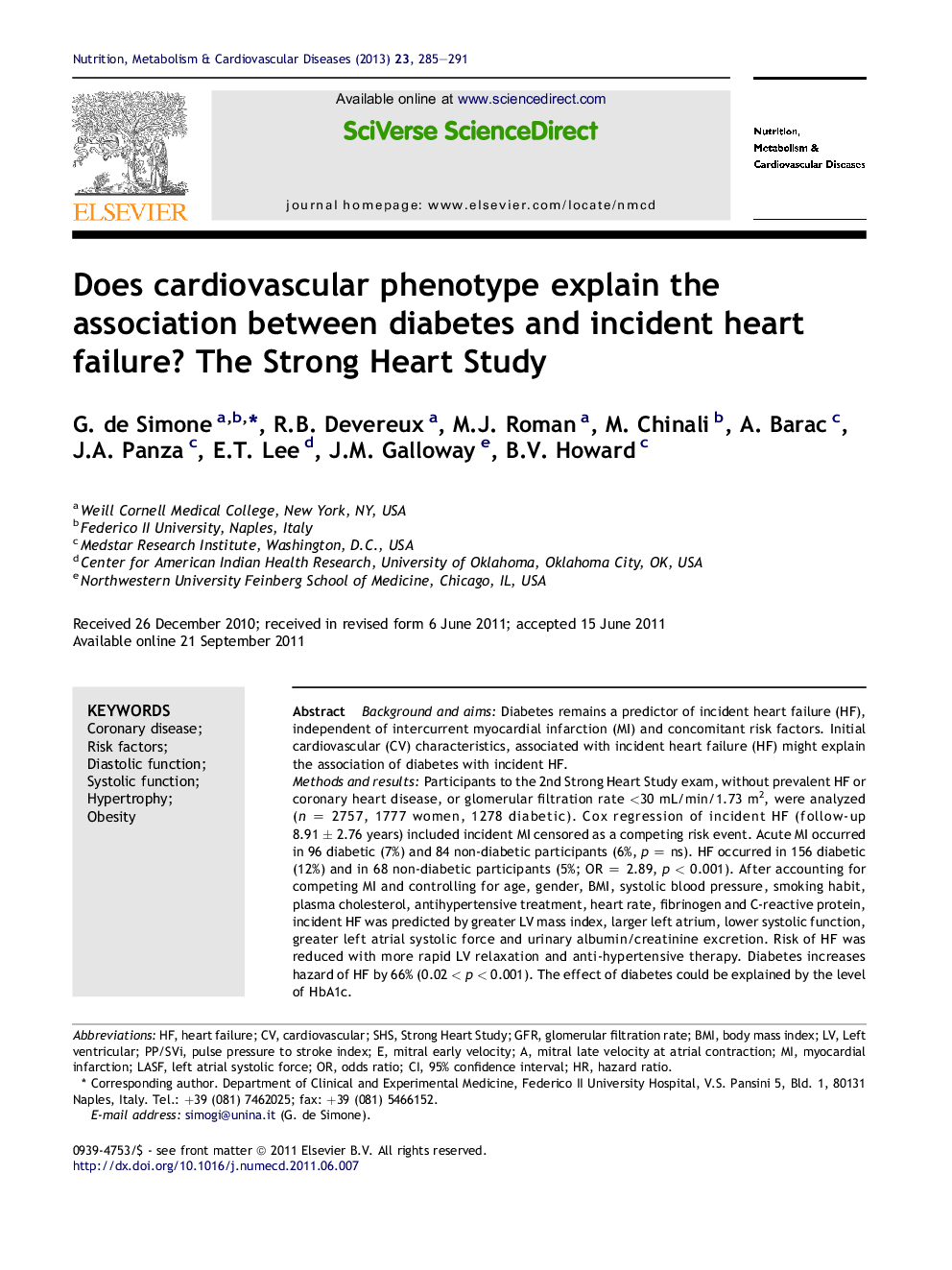| کد مقاله | کد نشریه | سال انتشار | مقاله انگلیسی | نسخه تمام متن |
|---|---|---|---|---|
| 3001841 | 1180681 | 2013 | 7 صفحه PDF | دانلود رایگان |

Background and aimsDiabetes remains a predictor of incident heart failure (HF), independent of intercurrent myocardial infarction (MI) and concomitant risk factors. Initial cardiovascular (CV) characteristics, associated with incident heart failure (HF) might explain the association of diabetes with incident HF.Methods and resultsParticipants to the 2nd Strong Heart Study exam, without prevalent HF or coronary heart disease, or glomerular filtration rate <30 mL/min/1.73 m2, were analyzed (n = 2757, 1777 women, 1278 diabetic). Cox regression of incident HF (follow-up 8.91 ± 2.76 years) included incident MI censored as a competing risk event. Acute MI occurred in 96 diabetic (7%) and 84 non-diabetic participants (6%, p = ns). HF occurred in 156 diabetic (12%) and in 68 non-diabetic participants (5%; OR = 2.89, p < 0.001). After accounting for competing MI and controlling for age, gender, BMI, systolic blood pressure, smoking habit, plasma cholesterol, antihypertensive treatment, heart rate, fibrinogen and C-reactive protein, incident HF was predicted by greater LV mass index, larger left atrium, lower systolic function, greater left atrial systolic force and urinary albumin/creatinine excretion. Risk of HF was reduced with more rapid LV relaxation and anti-hypertensive therapy. Diabetes increases hazard of HF by 66% (0.02 < p < 0.001). The effect of diabetes could be explained by the level of HbA1c.ConclusionsIncident HF occurs more frequently in diabetes, independent of intercurrent MI, abnormal LV geometry, subclinical systolic dysfunction and indicators of less rapid LV relaxation, and is influenced by poor metabolic control. Identification of CV phenotype at high-risk for HF in diabetes should be advised.
Journal: Nutrition, Metabolism and Cardiovascular Diseases - Volume 23, Issue 4, April 2013, Pages 285–291